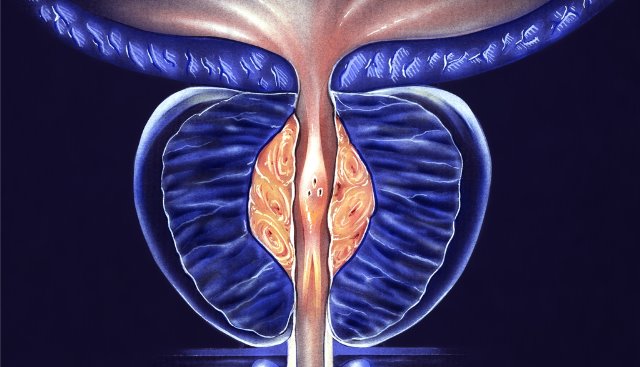
Q&A: Dr. Alice Yu Discusses Management of Localized Prostate Cancer Using Irreversible Electroporation Ablation
 Dr. Alice Yu, a urologist in the Department of Genitourinary Oncology at Moffitt Cancer Center, discusses treatment options for localized prostate cancer.
Dr. Alice Yu, a urologist in the Department of Genitourinary Oncology at Moffitt Cancer Center, discusses treatment options for localized prostate cancer.
What are the treatment options for localized prostate cancer?
Prostate cancer is the most common cancer among men in the United States. Currently, the standard of care treatment for prostate cancer involves treatment of the entire organ with surgery or radiation therapy. The radiation therapy treatment is associated with urinary side effects and erectile dysfunction.
"Focal therapy" is FDA-approved for surgical ablation of soft tissue. It is a novel image-guided tissue ablation for prostate cancer that targets areas of known cancer within the prostate while preserving the surrounding tissue. The goal of focal therapy treatment is to reduce side effects while maintaining cancer control.
What is irreversible electroporation ablation?
Irreversible electroporation (IRE) is a focal therapy technology that ablates prostate tissue by delivering short, high-voltage electrical pulses through needle electrodes preplaced within the tissue to be ablated. These strong electric fields destroy cancer cells without exposing the prostate to radiation or heating it. Additionally, the IRE technique can destroy small prostate tumors without treating the rest of the prostate thus reducing the side effects. IRE is only used on patients with intermediate-risk prostate cancer, who have small, visible tumors shown on the MRI.
What is the quality of life with focal therapy versus radical prostatectomy?
By treating a small portion of the prostate, side effects of IRE are minimal whereas other treatment modalities frequently result in severe side effects like incontinence or erectile dysfunction. Urinary incontinence is common after radical prostatectomy. However, symptoms do improve with time. With IRE, some studies have shown no change in incontinence or urinary quality of life. In terms of sexual quality of life, many patients struggle with erectile dysfunction after radical prostatectomy. Sexual dysfunction can occur after IRE although 75% of men report no change in erectile function after the procedure.
What is the efficacy and safety assessment of IRE of localized prostate cancer?
Short-term retrospective studies have shown that less than 10% of patients develop recurrence in the prostate after IRE. Long-term data is not available, however, there are ongoing studies to understand the correlation between a localized prostate recurrence and IRE. High-grade adverse events are also uncommon.
You mentioned an ongoing SUO-CTC multi-institutional trial that will be available at Moffitt. Do you have a timeline for when the trial will open?
The Pivotal Study of the NanoKnife System for the Ablation of Prostate Tissue (PRESERVE) is a multi-institutional collaboration across the U.S. in partnership with the Society of Urologic Oncology Clinical Trials Consortium (SUO-CTC). We hope to open the trial in early 2023. In the meantime, patients can be treated with IRE.
Moffitt's advanced Genitourinary Oncology Program offers a comprehensive range of services, from chemotherapy, radiation therapy, and surgery to nuclear medicine, pathology, and supportive care. Due to a direct line of communication between each of these subspecialties, we are able to provide patients with comprehensive treatment plans without the frustrations of being referred from specialist to specialist. We specialize in complex treatments, such as robotic surgeries and organ-preserving surgeries; our team performs a substantial number of these procedures each year. Furthermore, through our robust research programs, we offer patients access to emerging therapies, such as immunotherapy.
Additionally, we do everything possible to keep referral times short; we can often arrange for a patient’s initial visit within just a few days of receiving the necessary paperwork. And, our team will maintain detailed patient records, making it easier when it comes time for the patient to transfer back to his or her referring physician for routine urology care.
To refer a patient to Moffitt, complete our online form or contact a physician liaison for assistance or support. As part of our efforts to shorten referral times as much as possible, online referrals are typically responded to within 24 - 48 hours.
